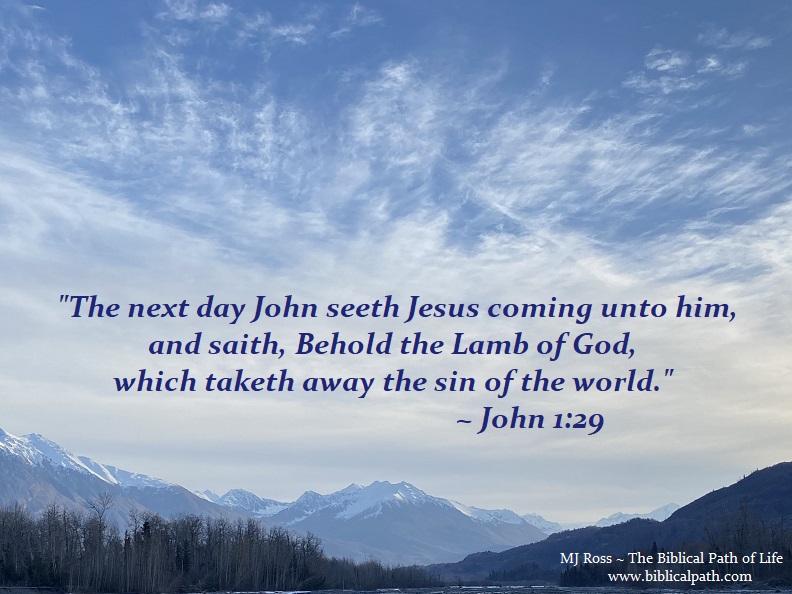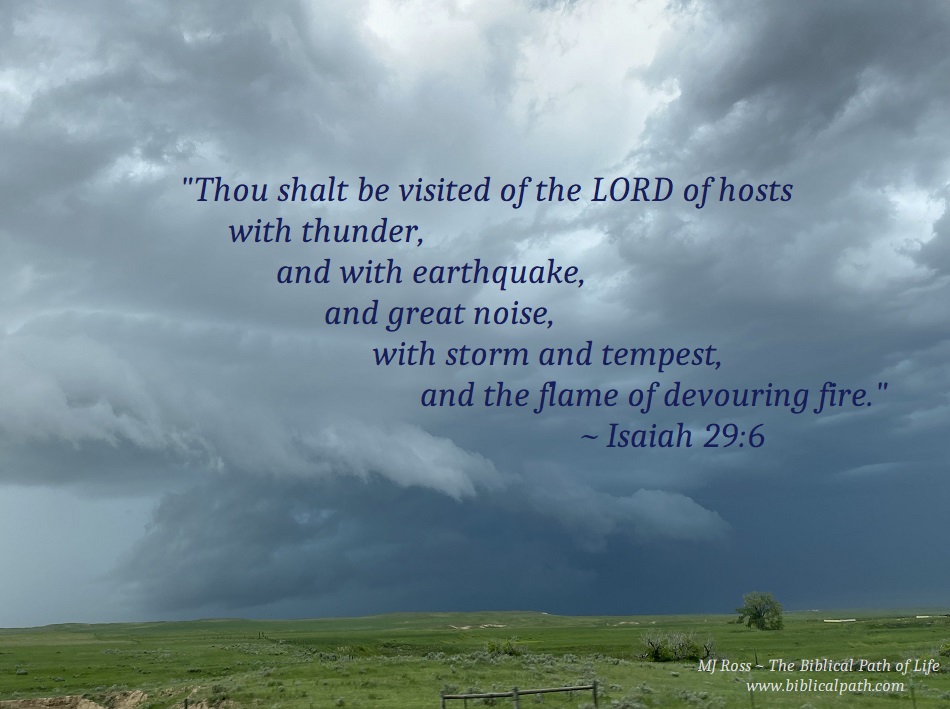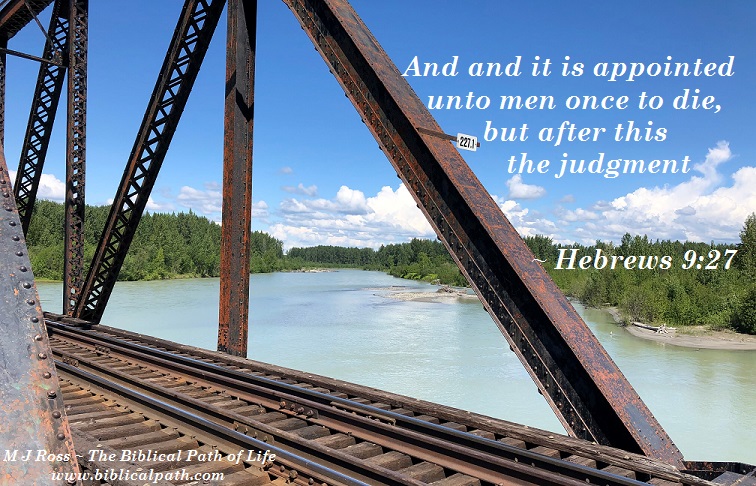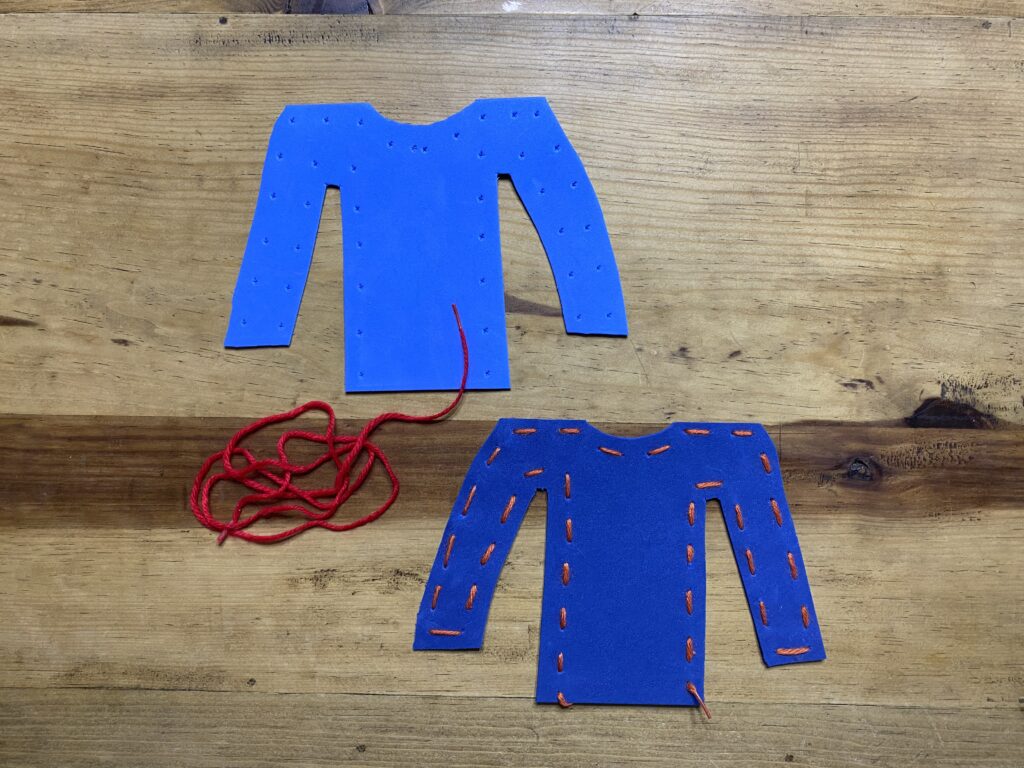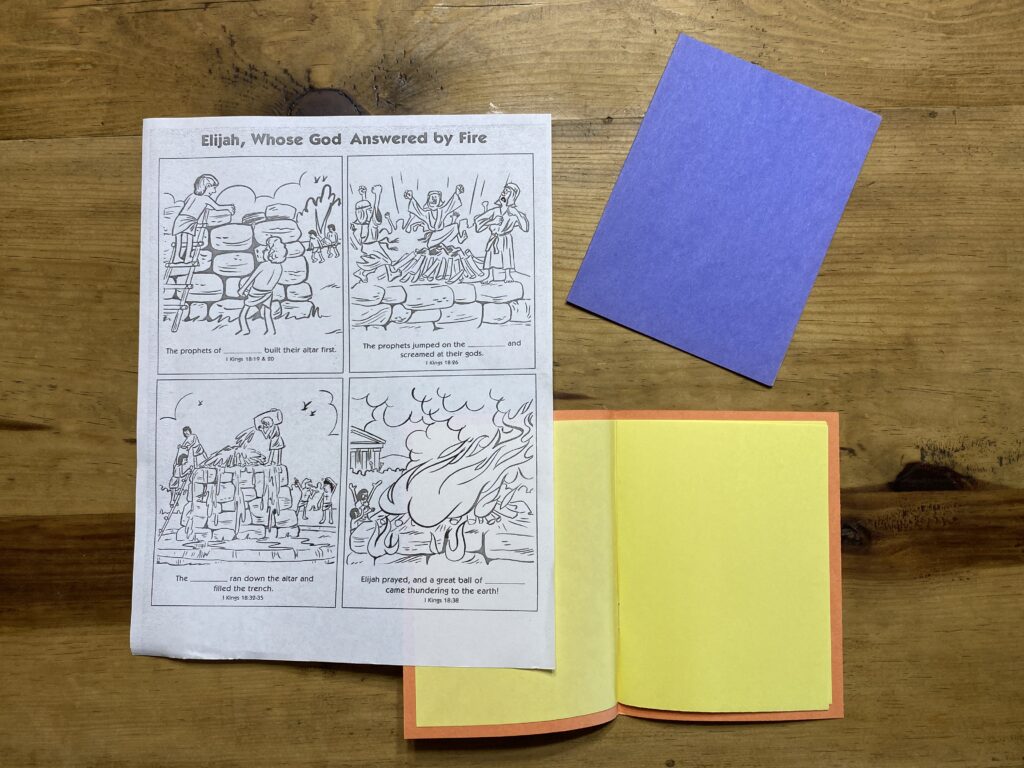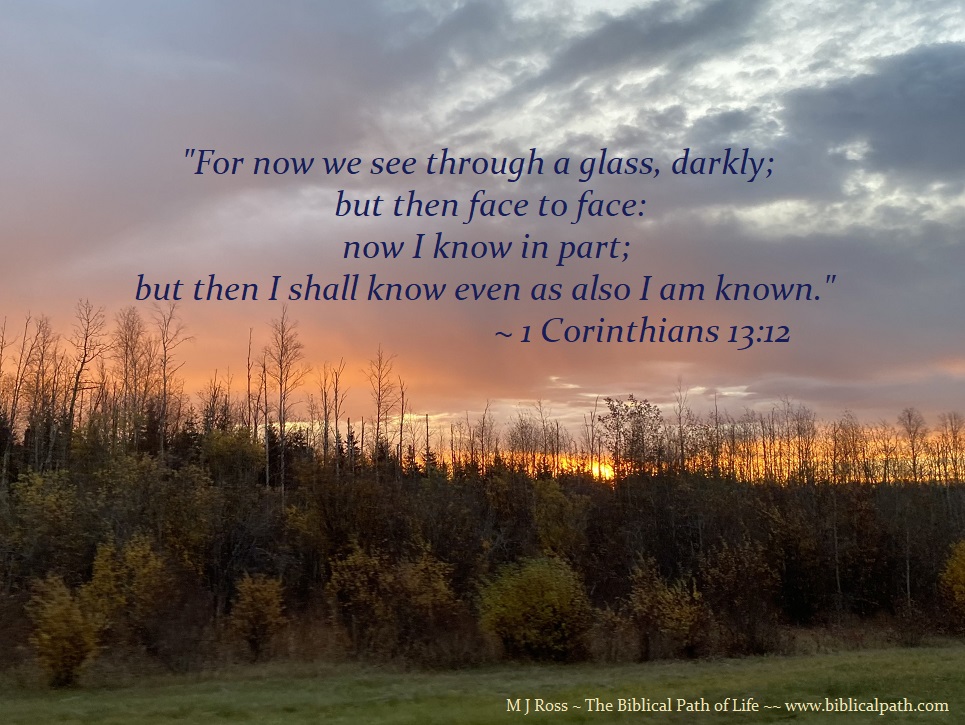
“For now we see through a glass, darkly; but then face to face: now I know in part; but then shall I know even as also I am known.”
1 Corinthians 13:12
Some of the great questions of all time deal with what happens after one dies. The Bible, of course, has many clues for us if we will just take the time to read them. The Old Testament saints understood there is a life after death. They often referred to being gathered unto their people and fathers in death (see (Genesis 25:8; 35:29; 49:33; and many more). Consider one event that may help us. It is recorded in three of the four Gospels: The Transfiguration.
Jesus took Peter, James, and John up into a mountain to pray. “And as he prayed, the fashion of his countenance was altered, and his raiment was white and glistering” (Luke 9:29). As Jesus prayed, he was “transfigured” before them (see Matthew 17:2). “30. And, behold, there talked with him two men, which were Moses and Elias: 31. Who appeared in glory, and spake of his decease which he should accomplish at Jerusalem” (Luke 9:30-31). Moses and Elias (Elijah) were there talking with Jesus about His decease. This word decease means “exit; exodus; (figuratively) death.” Moses and Elijah were speaking to Jesus of the death He was about to accomplish – which is why Jesus came to earth as a man (see Romans 5:8-10; Hebrews 2:14-15; 1 Peter 3:18). Peter, James, and John had fallen asleep. However, when they awoke, they saw Jesus in His glory along with Moses and Elijah.(see Luke 9:32-33).
Consider the many things that this brief meeting tells us. First, we can understand that there is life after death – for Moses and Elijah had died hundreds of years earlier! More than that, the disciples recognized who they were. Moses and Elijah were known by their personalities (for there was no way they knew what they looked like. There were no pictures of them!). Moses and Elijah are both well known in their character and deeds in the Old Testament. Also note: they were two men. They were still human beings. They had not turned into angels with wings. Remember that Jesus, after His resurrection, was in human form. “Behold my hands and my feet, that it is I myself: handle me, and see; for a spirit hath not flesh and bones, as ye see me have” (Luke 24:39). Moses and Elijah had bodies much like we will have one day. 1 Corinthians chapter 15 tells us much about this. Especially see the following: “It is sown a natural body; it is raised a spiritual body. There is a natural body, and there is a spiritual body” (1 Corinthians 15:44).
Moses and Elijah were standing there having a conversation with Jesus. This tells us that they were not in any kind of a “soul-sleep”. They were quite conscious in their conversation! They were having a time of fellowship with Jesus, speaking of his pending death that they knew was about to take place. What Moses and Elijah had spoken of while they lived on this earth was only a foretelling of what Jesus was about to complete. “For God sent not his Son into the world to condemn the world; but that the world through him might be saved” (John 3:17). Those who put their trust in Jesus will have eternal life. It is the choice of each individual person. “18. He that believeth on him is not condemned: but he that believeth not is condemned already, because he hath not believed in the name of the only begotten Son of God. 19. And this is the condemnation, that light is come into the world, and men loved darkness rather than light, because their deeds were evil” (John 3:18-19). Jesus came to save anyone who would believe. However, those who do not believe upon Jesus will have God’s eternal wrath upon them – forever (see John 3:36). This is the second death (see Revelation 21:8).
We can recognize that Jesus had told His disciples about His pending death shortly before He took them up that mountain. “Saying, The Son of man must suffer many things, and be rejected of the elders and chief priests and scribes, and be slain, and be raised the third day” (Luke 9:22). However, it seems as if they did not comprehend what it was that Jesus was telling them. It is good to know, that Jesus was able to have a conversation with Moses and Elijah about His pending death. They knew and understood what was about to take place. That is another encouraging insight into the after-life – we will know and understand things that we do not here in this life. “For now we see through a glass, darkly; but then face to face: now I know in part; but then shall I know even as also I am known” (1 Corinthians 13:12).
Have you rejected Jesus in this life, only waiting for the eternal wrath of God, the second death?
Or
Have you trusted in Jesus in this life, understanding that one day you will know Him even as you are known – for eternity?
Find out how to trust in Jesus with your life.
